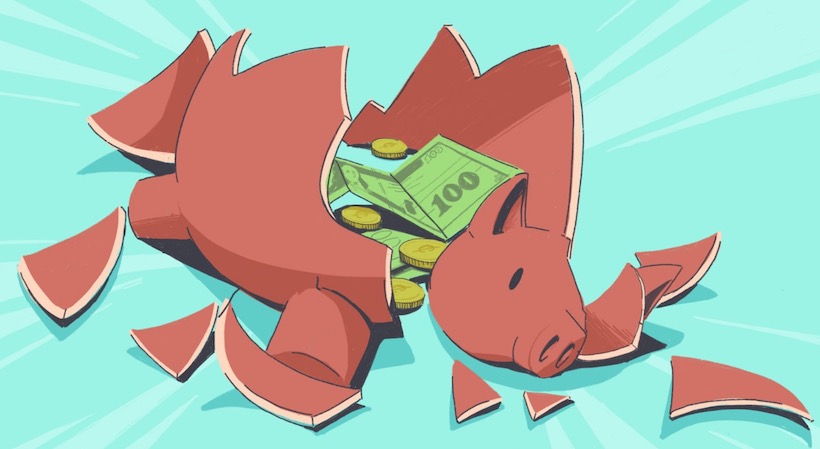Even the world’s wealthiest people make poor financial decisions. We asked six self-made millionaires to reveal what they learned from their biggest money regrets.
Here’s what these leading entrepreneurs and The Oracles advisors had to say:
I didn’t invest in Uber
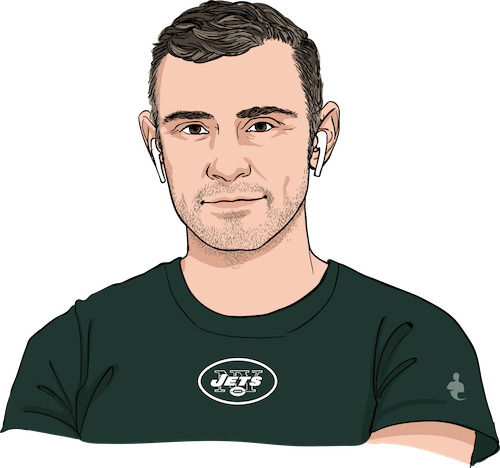
“I had the chance to invest in Uber in the early days and I passed it up — twice. My friends, Travis and Garrett, started the company, and I still didn’t invest! The ride-sharing company started as a side hustle and they hired someone else to run it, so I didn’t think they were going to make it.
Had I invested $25,000 in Uber, like I did with many other companies, the value would have reached $300 million a few years ago. I regret not investing in the company, but I’m also glad the market punched me in the face. I deserved it — and I’m even more driven now because of it. That’s why I grab every opportunity I can.”
— Gary Vaynerchuk, founder and CEO of VaynerX; five-time New York Times bestselling author of “Crushing It!”
Special offer: Get the essentials to deliver great customer support, fast — for just $25 a month
I wasn’t quick to learn the value of equity
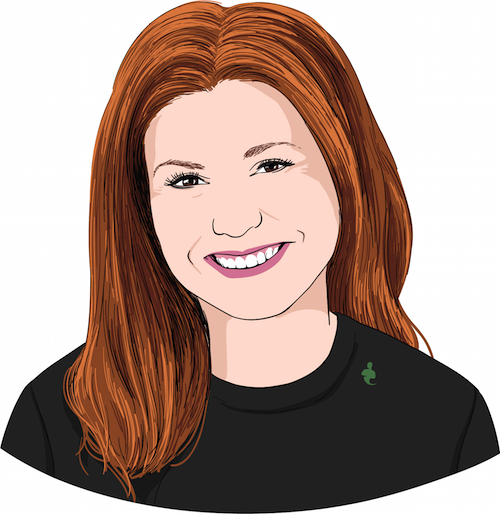
“The real answer is not investing in myself or believing in myself, and thinking that hiring people with more experience and industry knowledge would solve my problems.
Since inception, Hint, the company I founded has been a brand that defied the odds and thrived because of its unconventional and disruptive approach that relied on passion and purpose.
I thought like a consumer advocate and created products that I felt good about, that are good for you, and that weren’t the norm in the beverage industry. I now know that the defining characteristic that made it work — no sweeteners of any kind — was the exact thing insiders wanted to compromise. The experts weren’t experts in realizing my vision; I had to do it myself.
From a purely monetary perspective, the biggest mistake I made was not understanding the value of equity. It’s a very specific element that is interpreted differently in each situation. It is paramount to understand what you are getting, when it will actually vest, and how much it is worth and could ultimately be worth.
— Kara Goldin, founder and CEO of Hint Inc.; creator of The Kara Network, a digital resource for entrepreneurs; and host of the ”Unstoppable″ podcast; follow Kara on Instagram
I was too cheap
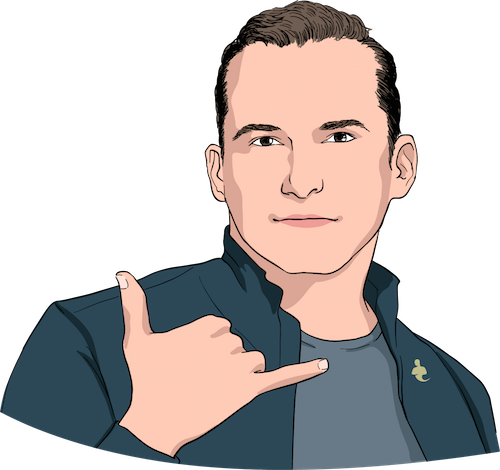
“On one of my first big real estate development projects, I negotiated with contractors and secured really low rates. They still had to maintain a profit, so they cut corners.
Since they weren’t making much on the job, they produced low-quality work using outsourced labor and cheap materials. The only way to repair their shoddy construction was to tear things down and start over, which cost us much more in the long run.
I learned that you shouldn’t run a business with a scarcity mentality. To work with the best people, you need to offer them more than your competitors do — which doesn’t always mean money. It could be education, benefits, or other incentives. Most people desire intangible things that money can’t buy, like feeling valued and appreciated.
By getting to know my team, I discovered different ways to give them value based on what motivated them. Now I work with some of the most exceptional people in the industry.”
— Andres Pira, real estate developer, founder and CEO of Blue Horizon Developments, and author of “Homeless to Billionaire: The 18 Principles of Wealth Attraction and Creating Unlimited Opportunity” (available on Amazon and Kindle); follow Andres on Facebook, Instagram and YouTube
Related: Gary Vaynerchuk and Other Top Entrepreneurs Share How They Kickstart a Successful Week
I spent money to impress others
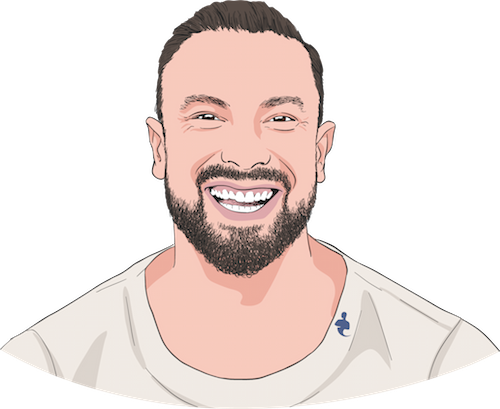
“I have no idea how much money I’ve lost to my ego. I spent a lot on cars, clothes, gadgets and other stuff that was useless — all because I was trying to look good and I thought this would impress others.
I later realized that I was seeking happiness from the validation of others. When I finally stopped trying to follow the masses, my business, success and happiness improved dramatically. Thanks to the book ‘I Will Teach You to Be Rich’ by Ramit Sethi, I learned that only three things truly give me joy and improve my life: Health, travel and learning.
Be clear on what actually brings you joy and gets you closer to what you want to achieve. Then you can happily spend lavishly on those things while cutting away everything else.”
— Chris Dufey, founder and CEO of Coaches Cartel, which he grew to a multimillion-dollar business in one year; author of ”Your First 100 Clients″ and host of The Chris Dufey Show podcast; connect with Chris on Facebook, Instagram and YouTube
I invested in a company I knew almost nothing about
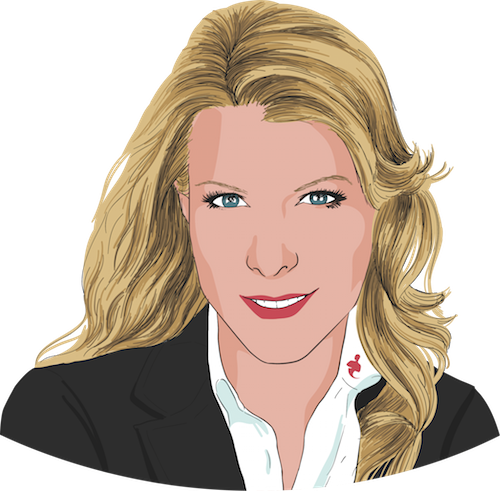
“Years ago, I invested in a company called Link Express. I knew almost nothing about the business, opportunity, market or other important variables, but a friend presented the opportunity.
I chose to invest based on my friend’s knowledge and enthusiasm, but it turned out that they didn’t know anything about the business, either. That’s not a smart way to do it. The amount I invested was a lot of money for me back then, and I lost it all.
I also did the opposite. I wanted to invest in Starbucks when it went public. I was living near Seattle, so I had seen their expansion firsthand. It seemed like a no-brainer, but I was talked out of it by someone who thought the stock was too expensive.
Through those experiences, I learned valuable — yet costly — lessons the hard way. Now, I listen to my gut and only invest in things I fully understand.”
— Holly Parker, founder and CEO of The Holly Parker Team at Douglas Elliman; award-winning broker who has made over $8 billion in sales; connect with Holly on LinkedIn and Instagram
Sign Up: Receive the StartupNation newsletter!
I spent everything I made
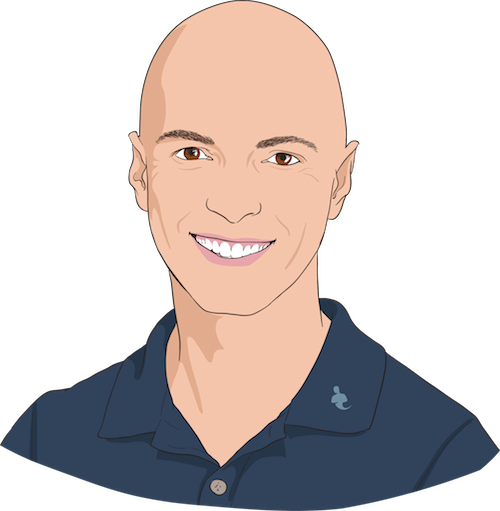
“The dumbest money mistake I’ve made was not understanding how to manage it. If $100 came in, I spent $100. I always ran out of money because it wasn’t allocated properly. I was using my business as a bank account and overextending it with expenses.
The lesson I learned: Decide what percentage of your revenue can go toward operating expenses. If you spend more than that, your business can’t afford to run the way it is. Find ways to cut back and be more disciplined.
After 25 years, I also learned to pay myself first. Profit is not the same as compensation. You must invest in compensation for yourself because at the end of the day, you’re the one taking the risk of starting a business.
Now that every dollar is divided into appropriate buckets, our cash flow and profit are much stronger.”
— Yuri Elkaim, founder and CEO of Healthpreneur, former professional athlete, and New York Times bestselling author; connect with Yuri on Facebook, LinkedIn and YouTube
Want to share your insights in a future article? Join The Oracles, a group of the world’s leading entrepreneurs who share their success strategies to help others build better lives. Apply here. For more articles like this, follow The Oracles on Facebook and LinkedIn.
Published Sept. 20, 2019.
Originally published on CNBC.com. © 2019 CNBC LLC. All Rights Reserved. A Division of NBC Universal


